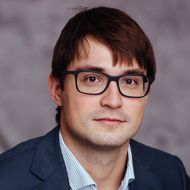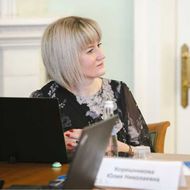Project Team of ‘Success and Self-Sustainability of the Individual in a Changing World’ Wins Russian Science Foundation Grant

Researchers from HSE University will receive funding from the Russian Science Foundation to study such forms of student employment as freelancing, self-employment, and entrepreneurship, all of which have been actively developing in recent years. The research will shed light on the new opportunities and challenges encountered by students and early-career specialists in the labour market. It will also aid in the development of effective strategies for their successful adaptation and development.
Changes in the world and the labour market mean that early-career specialists need have new skills, such as the ability to act without specific instructions and to make decisions independently. These competencies are grouped under terms such as ‘agency’, ‘independence’, ‘proactivity’, ‘initiative’, ‘entrepreneurial spirit’, etc, and are widely studied in Russia and abroad.
The increased focus on this topic is the result of changes in the economy and society, a phenomenon sometimes referred to in sociology circles as ‘destructuring’. In the labour market, this manifests as a growth in the popularity of alternative forms of work alongside traditional corporate employment. These alternative forms include platform work, freelancing, entrepreneurship, etc. In addition, so-called ‘corporate entrepreneurship’ is increasingly sought after in organisations.
However, scientists and practitioners do not fully agree on which qualities a person should have in order to be successful in new employment circumstances, nor how to develop these qualities.

In order to address these challenges, researchers from HSE University will study the trajectories of students and graduates of higher education in new social and economic conditions, assess the role of education in forming and supporting non-traditional forms of employment, and examine the characteristics that contribute to productive forms of agency. All of this will be done as part of the strategic project 'Success and Self-Sustainability of the Individual in a Changing World' implemented as part of the Priority 2030 programme.

Head of the Laboratory for Human Capital and Education Research at the HSE University Institute of Education and head of the research project
‘Research into non-traditional forms of employment among students has major significance in modern society, where technology—and digitalisation especially—is changing the traditional models of business processes. The results of this research can shed some light on new the new opportunities and challenges facing students and early-career specialists, as well as help to develop effective strategies for their successful adaptation and development. I am confident that this research will produce valuable theoretical and practical results.’
Yulia Koreshnikova, supervisor of the strategic project 'Success and Self-Sustainability of the Individual in a Changing World', explains that the researchers have set themselves a range of tasks, including testing theoretical models for describing the work paths of students, identifying the most common types of non-traditional employment, and assessing important competencies in freelancing, self-employment, and entrepreneurship for early-career specialists. The second group of tasks is related to determining the role of higher education in the formation of sought-after skills in new conditions, with the goal of determining which organisational and teaching conditions must be created to train students in higher education.

Supervisor of the strategic project 'Success and Self-Sustainability of the Individual in a Changing World'
‘Our project will help to systematise knowledge of non-traditional formats of employment and the higher education-related needs of employers, employees, and future businesspeople. We will also determine how universities can meet this challenge.’
The members of the research group headed by Pavel Sorokin are: Vera Maltseva, Yulia Koreshnikova, Natalia Shirkova, Alexandr Timofeev, Darya Pavlyuk, Timofey Redko, and Yulia Vyatskaya.
See also:
Intellectual Capital in the Face of Shocks: Russia and Iran Explore Internationalisation
In today's issue of Schola, Mariya Molodchik, Senior Research Fellow at the International Laboratory of Intangible-Driven Economy and Professor at the School of Economics and Finance at HSE University’s Campus in Perm, discusses a joint project with Iran University of Science and Technology, titled 'Internationalization of Companies from Developing Countries: The Role of Intellectual Resources in Response to Exogenous Shocks.'
HSE Researchers Introduce Novel Symmetry-Aware Neural Network Architecture
Researchers at the HSE Laboratory for Geometric Algebra and Applications have developed a new neural network architecture that can accelerate and streamline data analysis in physics, biology, and engineering. The scientists presented their solution on July 16 in Vancouver at ICML 2025, one of the world's leading conferences on machine learning. Both the paper and the source code are publicly available.
Students from HSE and Other Universities Carry Out Research Expedition at New Chersonesos
As part of the Rediscovering Russia student expedition programme, HSE University organised a research trip under the framework of the School for Young Humanities Scholars to the New Chersonesos museum and church complex in Sevastopol. The results of this expedition will form the basis for proposals on educational projects aimed at shaping young people’s historical memory of the role of Chersonesos, Crimea, and the Byzantine legacy in the history of Russian culture and statehood.
HSE Researchers Determine Frequency of Genetic Mutations in People with Pulmonary Hypertension
For the first time in Russia, a team of scientists and clinicians has conducted a large-scale genetic study of patients with pulmonary arterial hypertension. The team, which included researchers from the International Laboratory of Bioinformatics at the HSE Faculty of Computer Science, analysed the genomes of over a hundred patients and found that approximately one in ten carried pathogenic mutations in the BMPR2 gene, which is responsible for vascular growth. Three of these mutations were described for the first time. The study has been published in Respiratory Research.
First Caucasus School on Experimental Research and Cognitive Sciences Takes Places in Adygea
On September 17–20, 2025, the First Caucasus School on Experimental Research and Cognitive Sciences took place at the Gornaya Legenda venue of Adyghe State University (ASU). The event was organised by the ASU Experimental Linguistics Laboratory, the HSE Centre for Language and Brain, and the HSE Centre for Sociocultural and Ethnolinguistic Studies. The school brought together over 50 participants—students, doctoral candidates, and early-career researchers from across Russia, along with lecturers and speakers from France, Serbia, China, Turkey, Kazakhstan, and Uzbekistan.
HSE Scientists Reveal How Disrupted Brain Connectivity Affects Cognitive and Social Behaviour in Children with Autism
An international team of scientists, including researchers from the HSE Centre for Language and Brain, has for the first time studied the connectivity between the brain's sensorimotor and cognitive control networks in children with autism. Using fMRI data, the researchers found that connections within the cognitive control network (responsible for attention and inhibitory control) are weakened, while connections between this network and the sensorimotor network (responsible for movement and sensory processing) are, by contrast, excessively strong. These features manifest as difficulties in social interaction and behavioural regulation in children. The study has been published in Brain Imaging and Behavior.
Scientists Develop New Method to Detect Motor Disorders Using 3D Objects
Researchers at HSE University have developed a new methodological approach to studying motor planning and execution. By using 3D-printed objects and an infrared tracking system, they demonstrated that the brain initiates the planning process even before movement begins. This approach may eventually aid in the assessment and treatment of patients with neurodegenerative diseases such as Parkinson’s. The paper has been published in Frontiers in Human Neuroscience.
Global AI Trends Discussed at International Foresight Workshop at HSE University
At an international foresight workshop on artificial intelligence held at HSE University, Russian and foreign scholars discussed the trends and challenges arising from the rapid development of AI.
'Biotech Is Booming Worldwide'
For more than five years, the International Laboratory of Bioinformatics at the HSE Faculty of Computer Science has been advancing cutting-edge research. During this time, its scientists have achieved major breakthroughs, including the development of CARDIOLIFE—a unique genetic test unmatched worldwide that predicts the likelihood of cardiovascular disease. With the active participation of HSE students, including doctoral students, the team is also working on a new generation of medicines. In this interview with the HSE News Service, Laboratory Head Maria Poptsova shares insights into their work.
HSE University–St Petersburg Holds Summer Intensive Course on Finance for Students from Five Countries
The International Summer School at HSE University–St Petersburg included the intensive course 'New Economic Drivers for Company.' International students explored the realm of applied finance through case studies of Russian companies.


